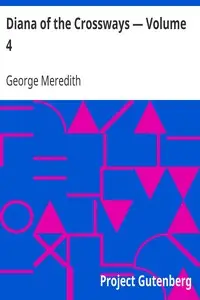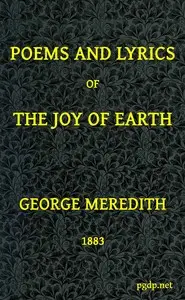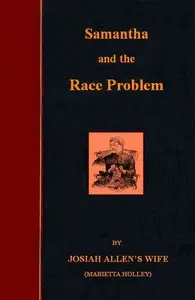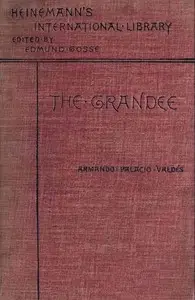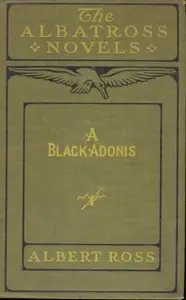"Rhoda Fleming — Volume 4" by George Meredith is a story set in a time of strict social rules, following characters whose lives get tangled up with love and tough choices. The book looks at Robert and Dahlia as they try to find their way through society's expectations while dealing with tough situations. Early in the story, Robert and Major Waring discuss social connections, especially the worrying friendship between Algernon Blancove and the untrustworthy Sedgett. At the same time, we see Dahlia struggling with her past mistakes and trying to find forgiveness. The book pulls readers into the characters' emotional battles, and their attempt to feel accepted despite their past actions.

Rhoda Fleming — Volume 4
By George Meredith
Amidst societal expectations, a gentleman's questionable alliances and a woman's troubled past collide, igniting a quest for acceptance and personal redemption.
Summary
About the AuthorGeorge Meredith was an English novelist and poet of the Victorian era. At first, his focus was poetry, influenced by John Keats among others, but Meredith gradually established a reputation as a novelist. The Ordeal of Richard Feverel (1859) briefly scandalised Victorian literary circles. Of his later novels, the most enduring is The Egoist (1879), though in his lifetime his greatest success was Diana of the Crossways (1885). His novels were innovative in their attention to characters' psychology, and also portrayed social change. His style, in both poetry and prose, was noted for its syntactic complexity; Oscar Wilde likened it to "chaos illumined by brilliant flashes of lightning". Meredith was an encourager of other novelists, as well as an influence on them; among those to benefit were Robert Louis Stevenson and George Gissing. Meredith was nominated for the Nobel Prize in Literature seven times.
George Meredith was an English novelist and poet of the Victorian era. At first, his focus was poetry, influenced by John Keats among others, but Meredith gradually established a reputation as a novelist. The Ordeal of Richard Feverel (1859) briefly scandalised Victorian literary circles. Of his later novels, the most enduring is The Egoist (1879), though in his lifetime his greatest success was Diana of the Crossways (1885). His novels were innovative in their attention to characters' psychology, and also portrayed social change. His style, in both poetry and prose, was noted for its syntactic complexity; Oscar Wilde likened it to "chaos illumined by brilliant flashes of lightning". Meredith was an encourager of other novelists, as well as an influence on them; among those to benefit were Robert Louis Stevenson and George Gissing. Meredith was nominated for the Nobel Prize in Literature seven times.






